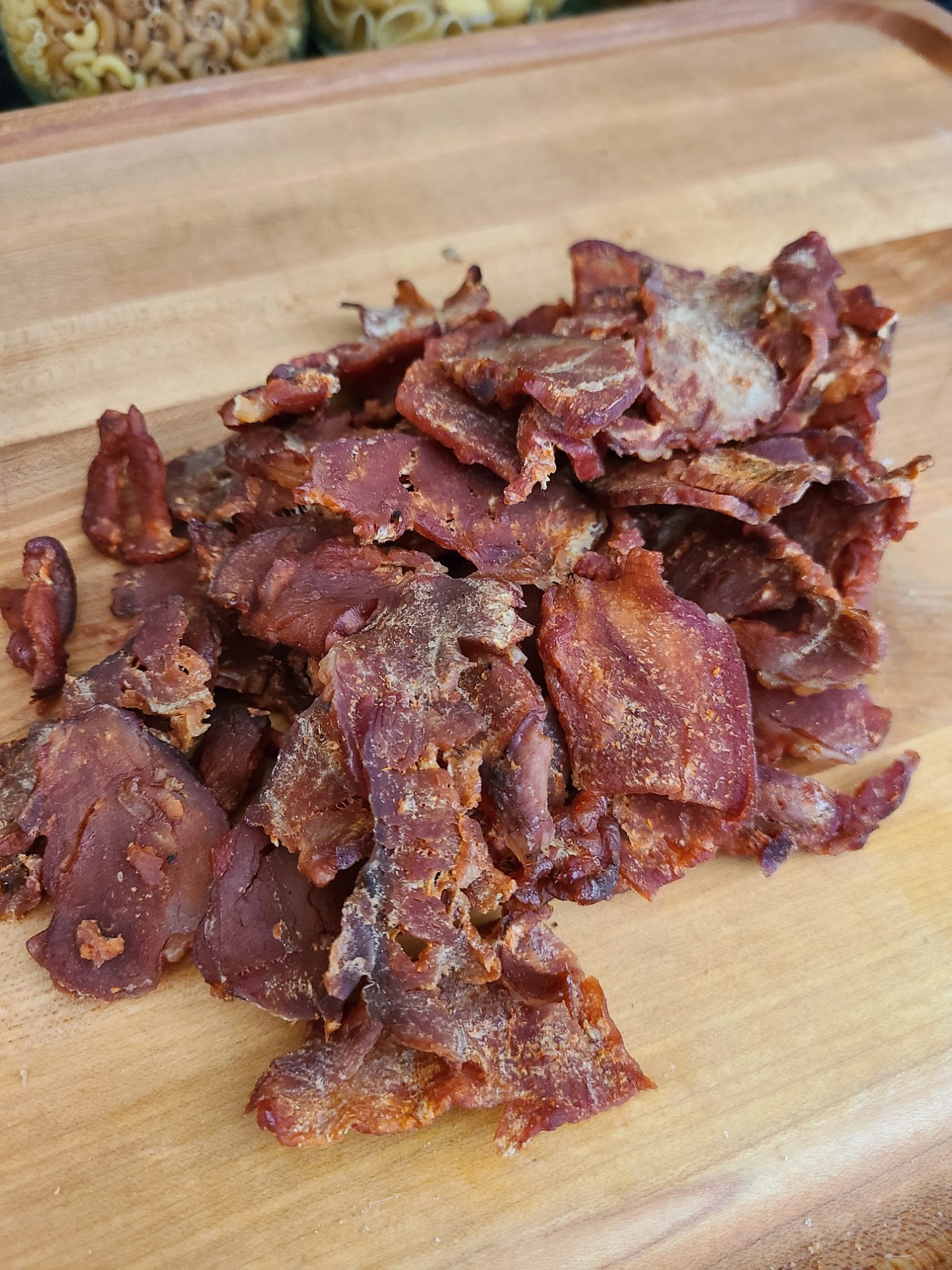
Sweet, Tangy, Meaty, & Delicious this is another simple Jerky recipe that all will enjoy. This recipe provides a great option for those that find a traditional Soy/Worcestershire base to spicy or if you're looking for a new take on an old favorite.

Slice meat into long strips 3/16 to 1/4 inch thick. Uniform slices will shorten the drying time, so use a meat slicer or have your butcher slice it for you. Cut across the grain for increased tenderness. Remove excess fat.
In a small bowl, combine all ingredients except meat. Stir to mix well. Place meat 3 or 4 layers deep in a glass, stoneware, plastic or stainless steel container, spooning vinegar mixture over each layer.
Cover tightly. Marinate 6 to 12 hours in the refrigerator, stirring occasionally and keeping the mixture tightly covered.
Place the meat strips on drying racks. Do not overlap the strips to ensure good air circulation. Oven temperature should be 140°F to 160°F for the first 8 to 10 hours. After that it may be lowered to 130°F until dry.
Place aluminum foil or a baking sheet underneath the drying tray to catch the drippings. Occasionally blot the jerky with paper towels as it dries to remove beads of oil. Test jerky for dryness by cooling a piece. When cool it should crack when bent but not break. There should be no moist spots.
12 servings
3 Pieces
* The % Daily Value (DV) tells you how much a nutrient in a serving of food contributes to a daily diet. 2,000 calories a day is used for general nutrition advice.